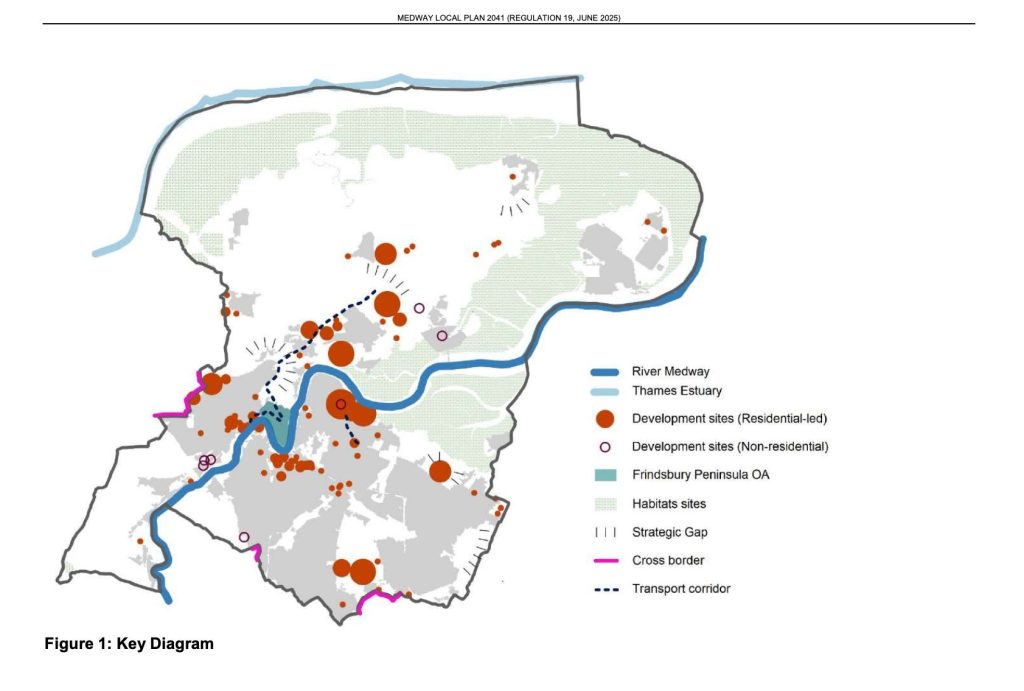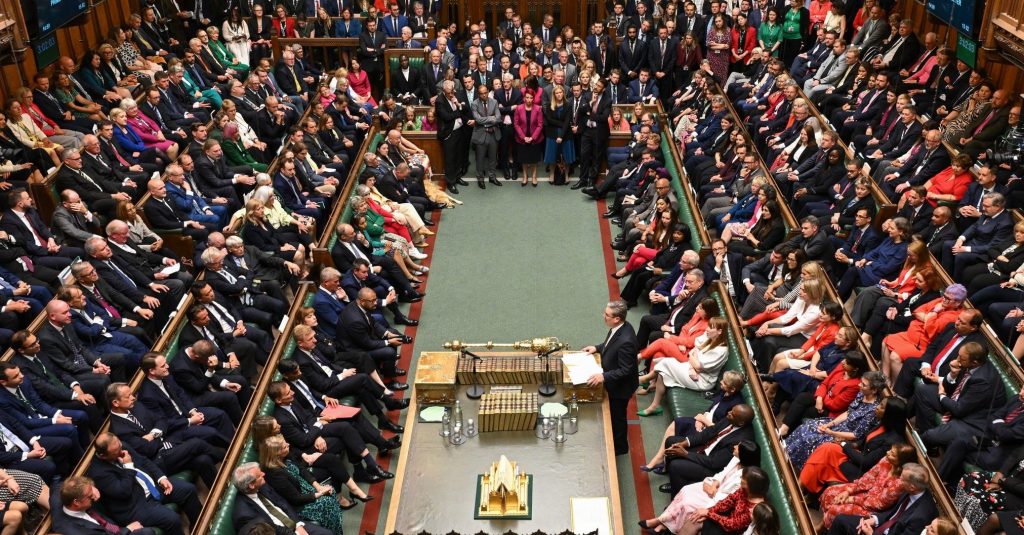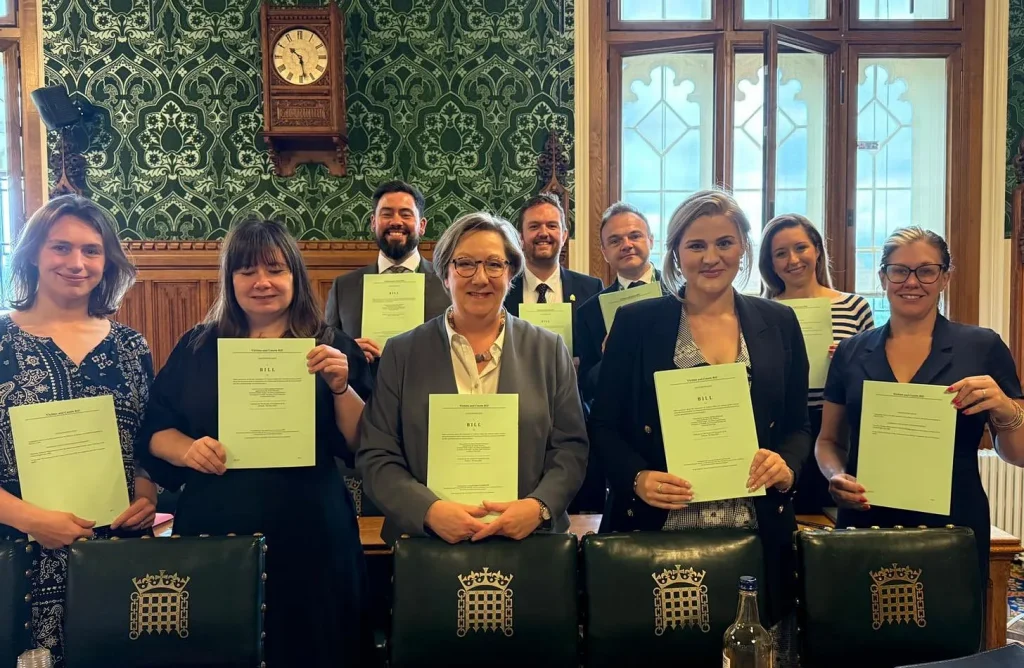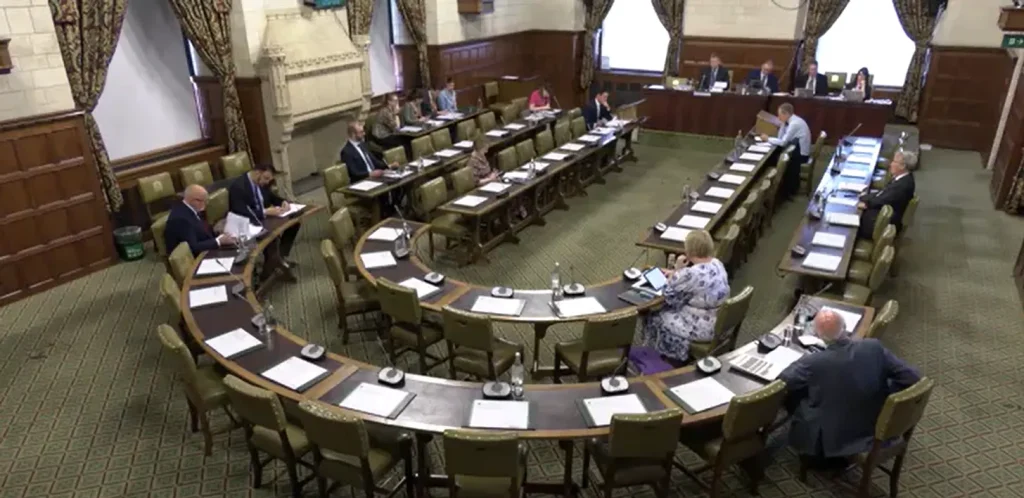Worryingly, I don’t think a week has gone by since I got elected where I haven’t mentioned these three words: the Local Plan. For my Medway residents, this one is for you.
Whenever I have the opportunity to speak with you, whether it is at one of my coffee afternoons or a surgery appointment, the demand for new GP surgeries, affordable homes, or schools always comes up, alongside conversations about how too many people are simply unable to get onto the housing ladder. My public meeting in Blue Bell Hill on Friday was no different.

I’m not one to quote Boris Johnson, but the reason we’ve been without a Local Plan in Medway for a decade is due to dither and delay. So, I’m more than pleased to see the Medway Local Plan 2041 reach the Regulation 19 consultation stage.
If you care about the future of Medway, how it grows, where homes are built, and the infrastructure our communities need, now is the time to have your say. The deadline to submit your comments is Monday, 11 August 2025, at 11:59pm.
Your views will be sent directly to the Planning Inspectorate to be considered as part of the formal examination. Whatever your view, don’t miss this opportunity to shape Medway’s future.
Ward Walks
It’s often the little things that matter most. Sometimes, the real measure of a council’s performance isn’t found in glossy reports but in the state of the streets, for better or worse. Fly-tipping, graffiti, blocked gullies: these are the issues that shape people’s daily experience of their local authority.

Together with your ward councillors, Jo, Smitha and Gareth, we’ve been out tackling the streets of Luton, Shipwrights and Fort Pitt wards, speaking with residents, reporting issues as they arise and lobbying for proactive measures to prevent problems in the future.
More ward walks are planned in the coming months. If there’s a particular spot you’d like us to visit, get in touch!
Assisted Dying
Many of you see Parliament as too often disconnected from the real world, concerned with party politics and whoever can make the cheapest shot at one another. This month however, when voting on the Terminally Ill Adults (End of Life) Bill, there was no taunting or childish behaviour, just careful, thoughtful contributions from MPs who all understood the weight of the decision we had to make.

It was not an easy one to navigate, nor one I took lightly. As you will know by now, the Bill passed its final stage in the Commons and moves to the House of Lords to face further scrutiny, and potentially many amendments.
This bill exists to provide compassion, choice, and dignity at the end of life for those who chose to make the voluntary and informed decision to end their suffering, with safeguards in place to protect the most vulnerable. Thank you again to those who shared their views with me, no matter which angle you take.
Armed Forces Day
There are many reasons to be proud of the constituency I represent, but the 8,500 veterans that call Medway home are a constant reminder of the invaluable importance that Chatham & Aylesford holds.
Therefore, being able to join the celebrations on Armed Forces Day was an incredibly rewarding end to my week three Saturdays ago. It was an honour to attend and stand alongside those who have served, and continue to serve, our country with such dedication and bravery.

The service and contributions these members of the community have provided for this country must be continually recognised and respected.
Standing Up for Victims
For too long, victims’ voices have been treated as an afterthought in our justice system. That’s why it was so important for me to take part in the Bill Committee for the Victims and Courts Bill this month, working to ensure that the experiences of victims are finally placed at the heart of the justice process.

We’ve made meaningful progress. The Bill will now guarantee an increase in CPS prosecutors, helping more criminal cases move forward and ensuring fewer delays. Offenders will be required to attend their sentencing hearings, something many victims and their families have long called for. Magistrates will be given greater powers, which means victims who have been waiting months or even years for justice will start to see cases move more quickly. Victims’ Commissioners will also receive new powers to better promote and protect the interests of victims and witnesses throughout the system.
None of this will fix the justice system overnight, but these are long overdue steps in the right direction. For victims and their families, it means more power, more protection, and more support in what is already an incredibly difficult and emotional process.
Is efficiency and technology always the answer?
It’s that time of year again when I’m lucky enough to have local secondary school students join me for work experience. Last week, they attended a Westminster Hall debate on “The use of generative artificial intelligence in education”, and they’ve kindly written up their thoughts:
“With the exponential rate of development of technology, the argument goes that education needs to move with the rest of the world in order to uphold the expectation that we teach children in as relevant a way as possible.
Integrating generative artificial intelligence (AI) has the promise of increasing the efficiency and effectiveness of the education system, most notably by reducing time spent by teachers on structuring lessons and setting out reports, allowing for more focus on enriching the content that is delivered.

But we must not forget to ensure this rise of technology is delivered appropriately and securely. Any student data input for tasks like writing reports will be forever on the internet, which is a huge concern regarding child data protection. But one thing that is being forgotten is our ability to retain information told by AI. A study showed that 83% of students who had used AI to write essays don’t even remember what they had written mere minutes later. They might pass the test, but 83% of them won’t know how or why.
As secondary school students, we see AI being used to cheat on work, write CVs, etc, and are greatly concerned about the growing reliance on such tools. We fear that not enough is being done, and it will soon be too late to reduce the damage that could be done by the usage of generative AI within education.
Will we be the last generation to read from physical textbooks, to have ink stain our school clothes, or to spend hours crafting cursive?
Lastly
If you need support, please don’t hesitate to reach out to me and my team using the contact details below. I also welcome any success stories—it’s just as important for me to know what’s working as it is to understand what isn’t, so that we can share best practices across the constituency.

